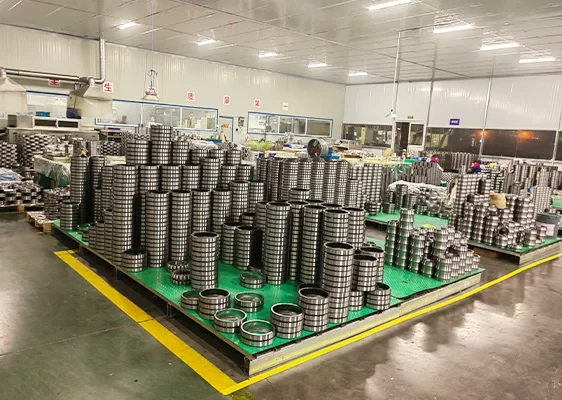Dec . 05, 2024 11:21 Back to list
Deep Groove Ball Bearing Manufacturing Solutions for Enhanced Performance and Reliability
The Importance of Deep Groove Ball Bearings in Modern Industry
Deep groove ball bearings are a cornerstone in the field of mechanical engineering and manufacturing. Their design, featuring a deep raceway that allows for high radial and moderate axial loads, makes them an indispensable component in various applications. As industries evolve and demand for precision machinery increases, the need for high-quality deep groove ball bearings remains paramount. This article explores the significance of deep groove ball bearings, the manufacturing process, and their application across different sectors.
Design and Functionality
Deep groove ball bearings consist of an outer ring, an inner ring, a cage, and numerous balls that facilitate rotational motion. This configuration allows them to accommodate both radial and axial loads, making them versatile for various applications. The deep raceway allows for greater contact between the balls and the raceways, providing high load-carrying capacity and reduced friction. This unique design enables the bearings to operate at higher speeds than other types of bearings, all while maintaining durability and reliability.
Manufacturing Process
The quality of deep groove ball bearings largely depends on the precision of their manufacturing process. The production of these bearings typically starts with high-grade steel, often alloyed for enhanced strength and corrosion resistance. The steel is subjected to heat treatment processes that harden the material, ensuring longevity and performance under demanding conditions.
The manufacturing process also involves advanced techniques like CNC machining, which allows for precise shaping of the bearing components. After machining, the components undergo a rigorous quality control process. This is crucial as it ensures that each bearing meets strict performance standards, reducing the likelihood of failure in industrial applications.
deep groove ball bearing factory

Multi-stage cleaning processes are also employed to eliminate any contaminants that could impair bearing performance. Finally, the bearings are assembled and lubricated in a controlled environment, ensuring they are ready for optimal performance in various settings.
Applications Across Industries
The applications of deep groove ball bearings are vast and diverse. In the automotive industry, they are utilized in engines, transmissions, and wheel assemblies, contributing to the overall efficiency and reliability of vehicles. In the aerospace sector, they are essential in aircraft engines and control systems, where reliability and performance are critical.
In manufacturing and industrial machinery, deep groove ball bearings are integral to the functioning of conveyor belts, pumps, and motors. They help reduce friction and wear, thus enhancing the lifespan of machinery and minimizing downtime due to maintenance. Additionally, in household appliances like washing machines and fans, these bearings play a crucial role in ensuring smooth operation.
Conclusion
Deep groove ball bearings are vital components that facilitate seamless operation across various industries. Their unique design and efficient performance characteristics make them essential for anything from high-speed machinery to everyday appliances. With advancements in manufacturing techniques and materials, the future of deep groove ball bearings looks promising, with potential for enhanced efficiency and longevity.
The ongoing demand for high-quality bearings places significant emphasis on factories that specialize in their production. As technology continues to evolve, these factories must adapt, adopting new methodologies and sustainability practices to meet global standards. Ultimately, the role of deep groove ball bearings in both current and future industries cannot be understated; they are indeed the unsung heroes of mechanical functionality. Whether in a heavy industrial application or a simple household gadget, they ensure that the wheels of progress continue to turn smoothly.
Latest news
-
25MM 2 BOLT UCFLX05-14 Flange bearing unit( oval)
NewsMar.07,2025
-
4 bolt UCF 200 series Pillow block bearings
NewsMar.07,2025
-
25MM 2 BOLT UCFLX05-14 Flange bearing unit( oval)
NewsMar.07,2025
-
UCF216-50 4-Bolt Flange Housing Square Bearing
NewsMar.07,2025
-
25MM 2 BOLT UCFLX05-14 Flange bearing unit( oval)
NewsMar.07,2025
-
spherical roller bearing material exporter
NewsMar.07,2025





